
Geoweaver
boost data pipeline's tangibility, enhance research productivity, reduce work anxiety
Stars: 84

Geoweaver is an in-browser software that enables users to easily compose and execute full-stack data processing workflows using online spatial data facilities, high-performance computation platforms, and open-source deep learning libraries. It provides server management, code repository, workflow orchestration software, and history recording capabilities. Users can run it from both local and remote machines. Geoweaver aims to make data processing workflows manageable for non-coder scientists and preserve model run history. It offers features like progress storage, organization, SSH connection to external servers, and a web UI with Python support.
README:
GitHub Repo: https://github.com/ESIPFed/Geoweaver
Pygeoweaver (Python Bindings): https://github.com/ESIPFed/pygeoweaver
Live Demo: https://geobrain.csiss.gmu.edu/Geoweaver
Geoweaver is an in-browser software allowing users to easily compose and execute full-stack data processing workflows via taking advantage of online spatial data facilities, high-performance computation platforms, and open-source deep learning libraries. It provides all-in-one capacity covering server management, code repository, workflow orchestration software, and history recorder.
It can be run from both local and remote (distributed) machines.
- Safely Store all your progress along the way.
- Stay organised and productive through out your years-long research
- Seamlessly connect to external servers with SSH.
- In-Built Web UI with full support for Python.
For further insights into Geoweaver, please explore the website at https://geoweaver.dev. GeoWeaver is a community effort. Any contribution is welcome and greatly appreciated!
- Host Management:
- Register machines via SSH as hosts for running processes.
- Add Jupyter Servers as host resources for interaction and workflow editing.
- Process Variety:
- Add various types of processes, such as bash scripts for data downloading.
- Jupyter Notebook Integration:
- Upload or import Jupyter notebooks.
- Intercept websocket traffic to save notebook versions, enabling easy revision history access.
- Process History and Logging:
- Detailed history of every process run, including logs and outputs, is stored.
- Workflow Management:
- Link processes to create workflows for parallel or sequential execution across different resources.
- All aspects of workflow management are centralized within GeoWeaver.
- Boosts Data Pipeline's Tangibility:
- Geoweaver provides an intuitive, interactive interface for visualizing data workflows, making it easier for users to understand and manage complex data pipelines.
- This clear visualization helps users to see the connections and dependencies between different components of their workflows.
- Enhances Research Productivity and Reduces Work Anxiety:
- Geoweaver has automated scheduling and execution of tasks, researchers can set up their workflows to run at specified times or conditions without manual intervention.
- This automation reduces the burden of monitoring and manual execution, allowing researchers to focus on analysis and innovation.
Geoweaver is a powerful tool for geospatial data processing, offering a range of features and capabilities. This guide will walk you through the steps to install Geoweaver on your system.
Before you begin, ensure that you have the following dependencies installed:
- Java 1.8 or higher (OpenJDK 8 or higher)
- Docker (required only for the Docker installation method)
A live demo site is available.
Learn more about Geoweaver in its official documentation at https://esipfed.github.io/Geoweaver/docs/install.html
For detailed steps on how to create a new release in Geoweaver, please refer to the release instructions.
PyGeoWeaver is a Python package that provides a convenient and user-friendly interface to interact with GeoWeaver, a powerful geospatial data processing application written in Java. With PyGeoWeaver, Jupyter notebook and JupyterLab users can seamlessly integrate and utilize the capabilities of GeoWeaver within their Python workflows.
Please do visit the PyGeoWeaver GitHub repository.
Thanks to our many contributors!
Key features included:
- Made GitHub zip importable and added .wci.yml.
- Introduced a process stop button, organized the SSH folder, and enabled shell commands to call Python processes.
- Added buffer size control and exit code usage for process status.
- Fixed numerous issues on remote hosts.
- Included new features such as hovering tips and code comparison.
- Added process history and status.
- Added code search function.
- Enabled run button in side panel.
- Allows reset password from terminal.
After incorporating feedback from the user community, the Geoweaver team released new versions. This major update focused on performance improvements and added several highly requested features:
- Log output is real time and web socket channels are untangled.
- Made the local logging real time.
- Created a macOS App for Geoweaver.
- Ability to Restore workflow.
- Run maven tests on github actions.
These versions solidified Geoweaver's position as a powerful open-source GIS solution and attracted interest from various industries and research institutions.
This version focuses on updating features and bug fixing:
- Fixed the chart visibility issue and table actions in side panel.
- Opens dock at bottom by default.
- Updated README.md by including latest features and modern style.
- Navigation fix for process tab and workflow tab in Guide page.
- Added filtering skipped process functionality.
- Responsive Design for lower resultion devices such as ipad / tablets.
- Support for MySQL and PostgreSQL - Production grade DB.
- Autosaves code on Run.
- Added support for Docker. The Geoweaver Docker image can be found here(https://hub.docker.com/repository/docker/geoweaver/geoweaver/general).
For more details, you can check the Geoweaver Releases Page.
If you found Geoweaver helpful in your research, please cite:
Sun, Z. et al., "Geoweaver: Advanced cyberinfrastructure for managing hybrid geoscientific AI workflows." ISPRS International Journal of Geo-Information 9, no. 2 (2020): 119.
Sun, Ziheng, Nicoleta C. Cristea, Kehan Yang, Ahmed Alnuaim, Lakshmi Chetana Gomaram Bikshapathireddy, Aji John, Justin Pflug et al. "Making machine learning-based snow water equivalent forecasting research productive and reusable by Geoweaver." In AGU fall meeting abstracts, vol. 2022, pp. IN23A-04. 2022.
Sun, Ziheng, and Nicoleta Cristea. "Geoweaver for Automating ML-based High Resolution Snow Mapping Workflow." In AGU Fall Meeting Abstracts, vol. 2021, pp. IN11C-07. 2021.
Sun, Ziheng, Liping Di, Jason Tullis, Annie Bryant Burgess, and Andrew Magill. "Geoweaver: Connecting Dots for Artificial Intelligence in Geoscience." In AGU Fall Meeting Abstracts, vol. 2020, pp. IN011-02. 2020.
Sun, Ziheng, Liping Di, Annie Burgess, Jason A. Tullis, and Andrew B. Magill. "Geoweaver: Advanced cyberinfrastructure for managing hybrid geoscientific AI workflows." ISPRS International Journal of Geo-Information 9, no. 2 (2020): 119.
For Tasks:
Click tags to check more tools for each tasksFor Jobs:
Alternative AI tools for Geoweaver
Similar Open Source Tools

Geoweaver
Geoweaver is an in-browser software that enables users to easily compose and execute full-stack data processing workflows using online spatial data facilities, high-performance computation platforms, and open-source deep learning libraries. It provides server management, code repository, workflow orchestration software, and history recording capabilities. Users can run it from both local and remote machines. Geoweaver aims to make data processing workflows manageable for non-coder scientists and preserve model run history. It offers features like progress storage, organization, SSH connection to external servers, and a web UI with Python support.

fluid
Fluid is an open source Kubernetes-native Distributed Dataset Orchestrator and Accelerator for data-intensive applications, such as big data and AI applications. It implements dataset abstraction, scalable cache runtime, automated data operations, elasticity and scheduling, and is runtime platform agnostic. Key concepts include Dataset and Runtime. Prerequisites include Kubernetes version > 1.16, Golang 1.18+, and Helm 3. The tool offers features like accelerating remote file accessing, machine learning, accelerating PVC, preloading dataset, and on-the-fly dataset cache scaling. Contributions are welcomed, and the project is under the Apache 2.0 license with a vendor-neutral approach.
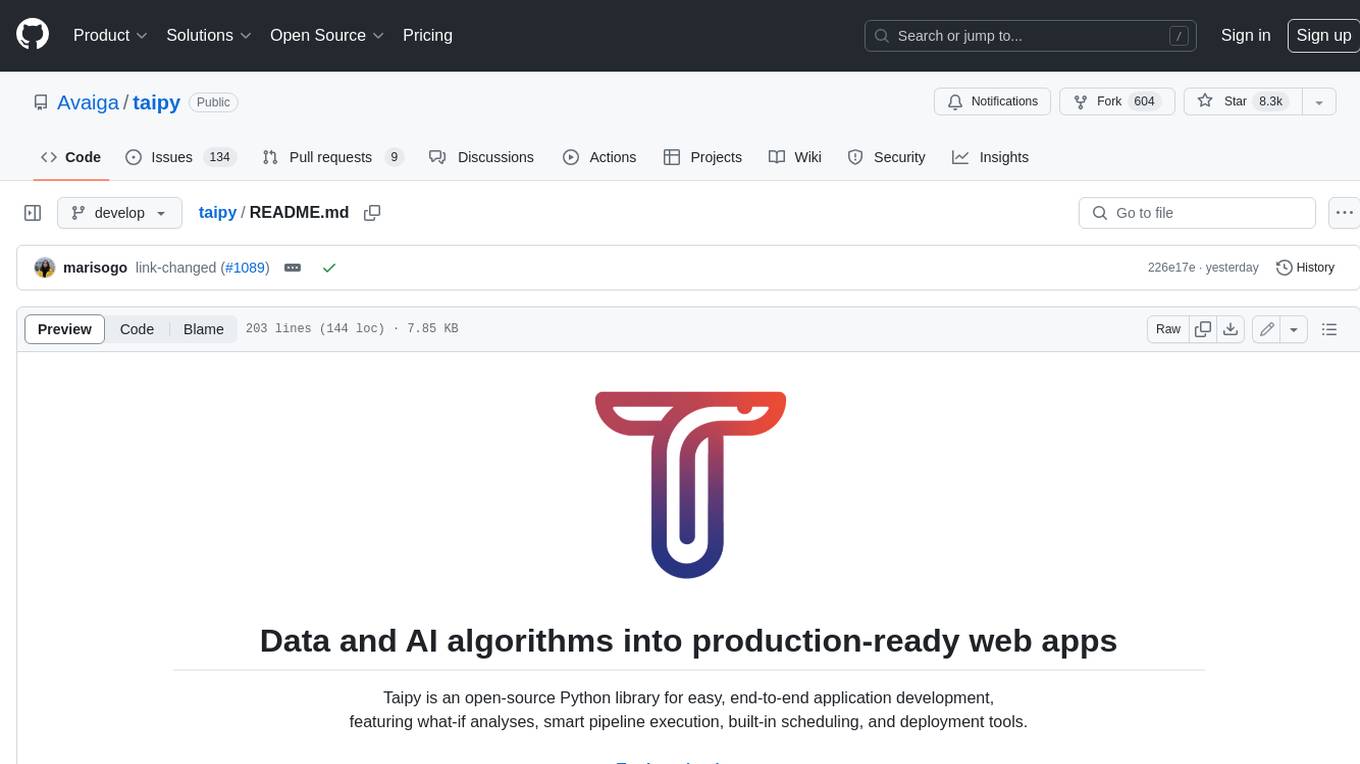
taipy
Taipy is an open-source Python library for easy, end-to-end application development, featuring what-if analyses, smart pipeline execution, built-in scheduling, and deployment tools.
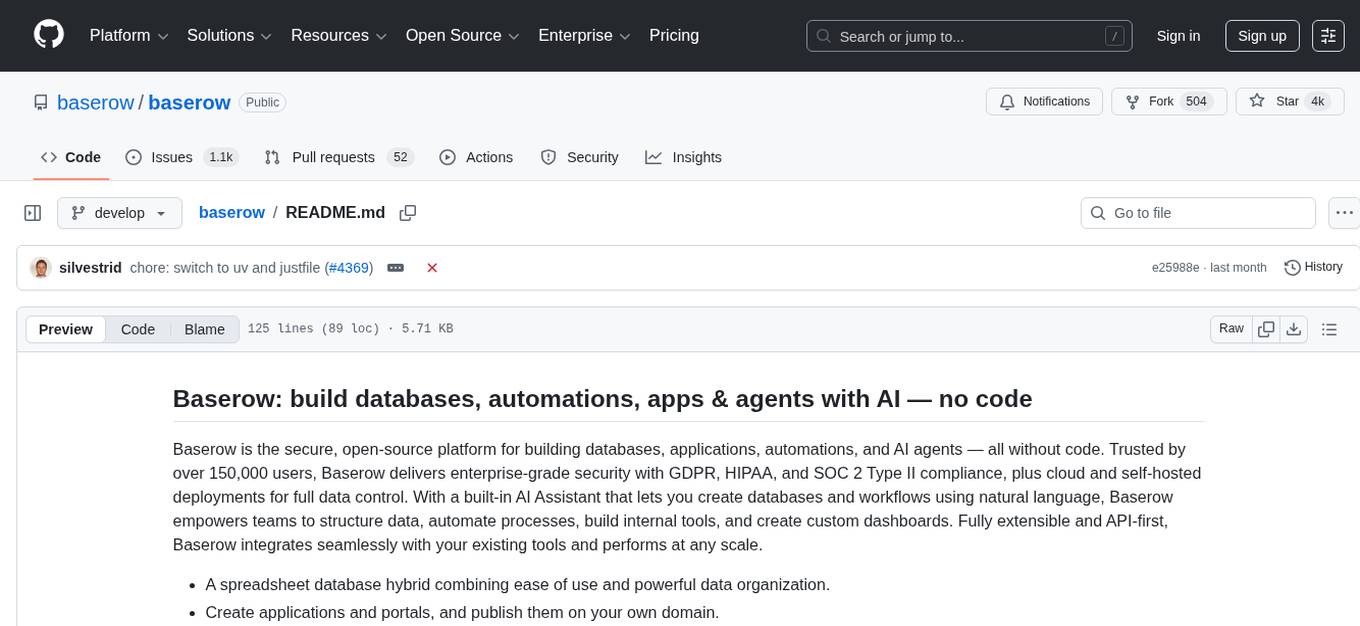
baserow
Baserow is a secure, open-source platform that allows users to build databases, applications, automations, and AI agents without writing any code. With enterprise-grade security compliance and both cloud and self-hosted deployment options, Baserow empowers teams to structure data, automate processes, create internal tools, and build custom dashboards. It features a spreadsheet database hybrid, AI Assistant for natural language database creation, GDPR, HIPAA, and SOC 2 Type II compliance, and seamless integration with existing tools. Baserow is API-first, extensible, and uses frameworks like Django, Vue.js, and PostgreSQL.
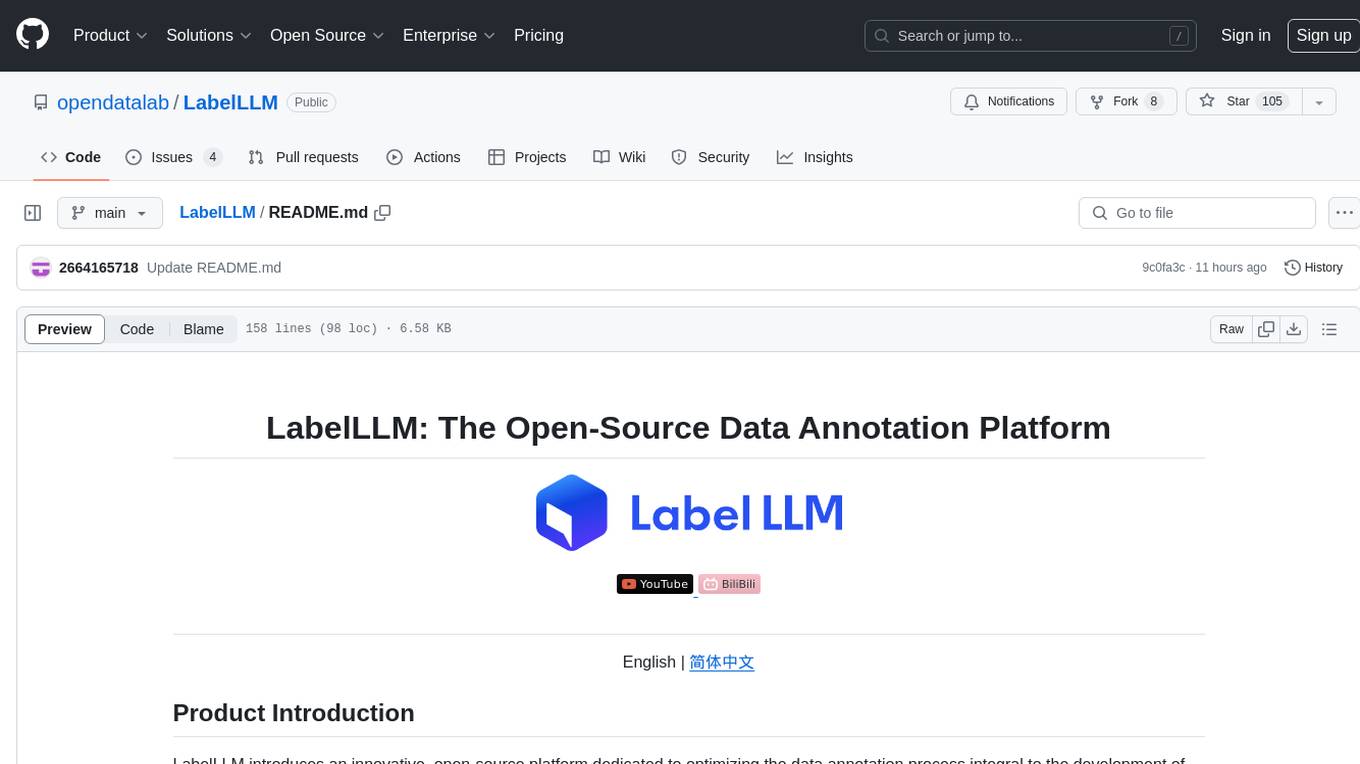
LabelLLM
LabelLLM is an open-source data annotation platform designed to optimize the data annotation process for LLM development. It offers flexible configuration, multimodal data support, comprehensive task management, and AI-assisted annotation. Users can access a suite of annotation tools, enjoy a user-friendly experience, and enhance efficiency. The platform allows real-time monitoring of annotation progress and quality control, ensuring data integrity and timeliness.

DocsGPT
DocsGPT is an open-source documentation assistant powered by GPT models. It simplifies the process of searching for information in project documentation by allowing developers to ask questions and receive accurate answers. With DocsGPT, users can say goodbye to manual searches and quickly find the information they need. The tool aims to revolutionize project documentation experiences and offers features like live previews, Discord community, guides, and contribution opportunities. It consists of a Flask app, Chrome extension, similarity search index creation script, and a frontend built with Vite and React. Users can quickly get started with DocsGPT by following the provided setup instructions and can contribute to its development by following the guidelines in the CONTRIBUTING.md file. The project follows a Code of Conduct to ensure a harassment-free community environment for all participants. DocsGPT is licensed under MIT and is built with LangChain.
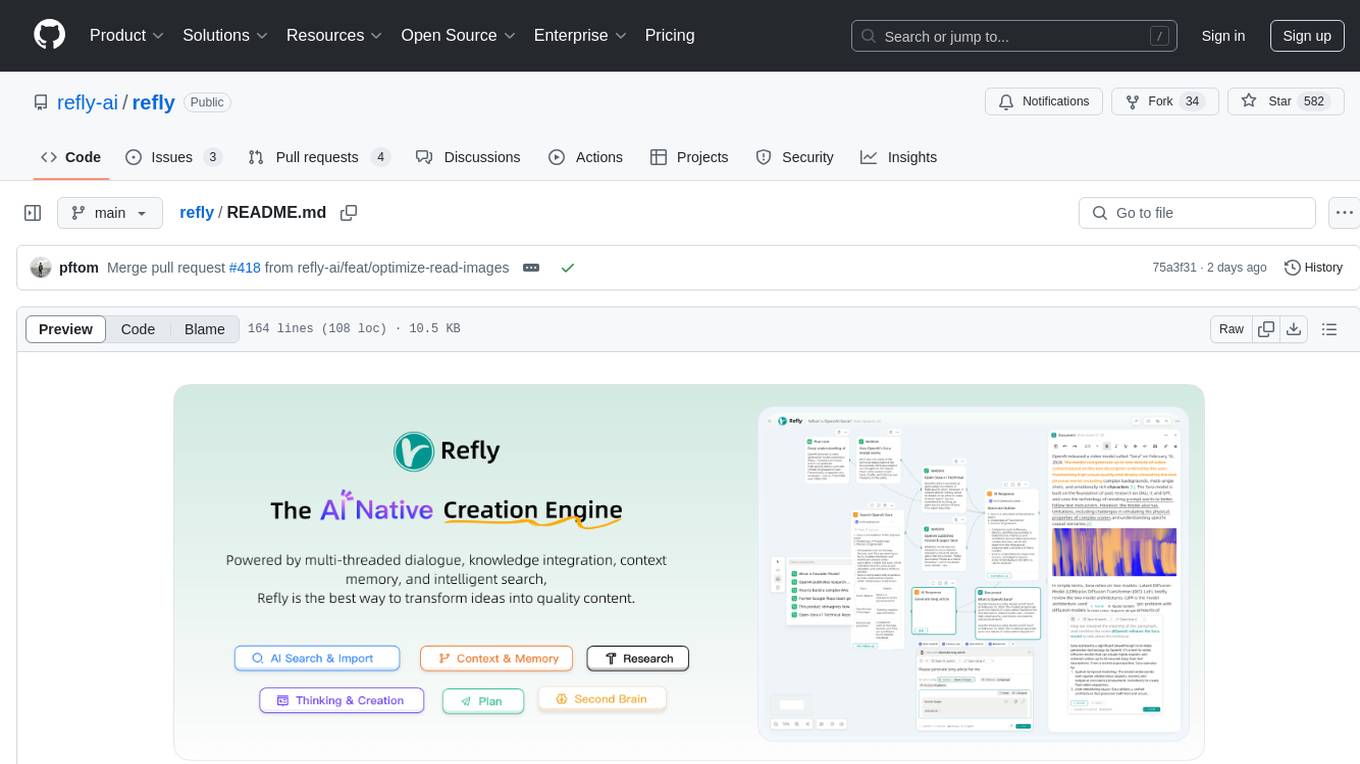
refly
Refly.AI is an open-source AI-native creation engine that empowers users to transform ideas into production-ready content. It features a free-form canvas interface with multi-threaded conversations, knowledge base integration, contextual memory, intelligent search, WYSIWYG AI editor, and more. Users can leverage AI-powered capabilities, context memory, knowledge base integration, quotes, and AI document editing to enhance their content creation process. Refly offers both cloud and self-hosting options, making it suitable for individuals, enterprises, and organizations. The tool is designed to facilitate human-AI collaboration and streamline content creation workflows.

Genkit
Genkit is an open-source framework for building full-stack AI-powered applications, used in production by Google's Firebase. It provides SDKs for JavaScript/TypeScript (Stable), Go (Beta), and Python (Alpha) with unified interface for integrating AI models from providers like Google, OpenAI, Anthropic, Ollama. Rapidly build chatbots, automations, and recommendation systems using streamlined APIs for multimodal content, structured outputs, tool calling, and agentic workflows. Genkit simplifies AI integration with open-source SDK, unified APIs, and offers text and image generation, structured data generation, tool calling, prompt templating, persisted chat interfaces, AI workflows, and AI-powered data retrieval (RAG).
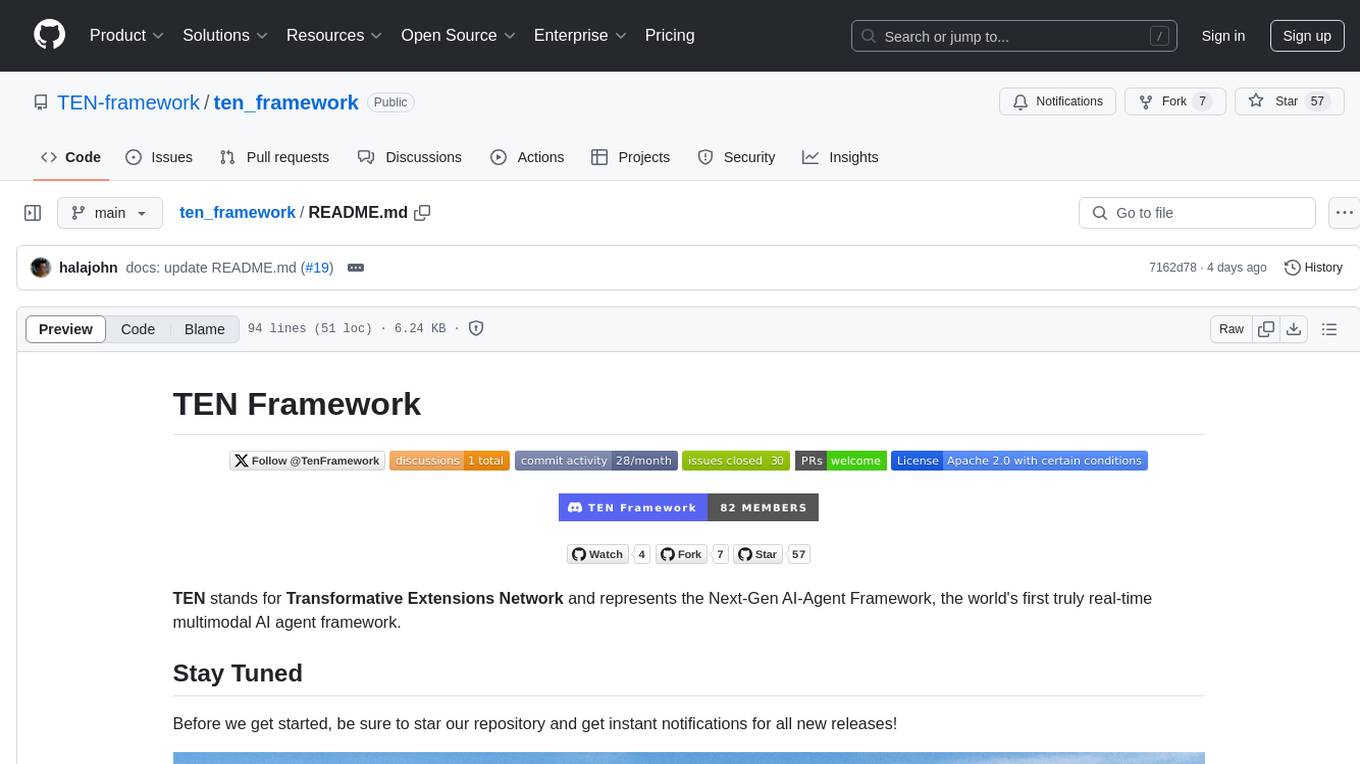
ten_framework
TEN Framework, short for Transformative Extensions Network, is the world's first real-time multimodal AI agent framework. It offers native support for high-performance, real-time multimodal interactions, supports multiple languages and platforms, enables edge-cloud integration, provides flexibility beyond model limitations, and allows for real-time agent state management. The framework facilitates the development of complex AI applications that transcend the limitations of large models by offering a drag-and-drop programming approach. It is suitable for scenarios like simultaneous interpretation, speech-to-text conversion, multilingual chat rooms, audio interaction, and audio-visual interaction.
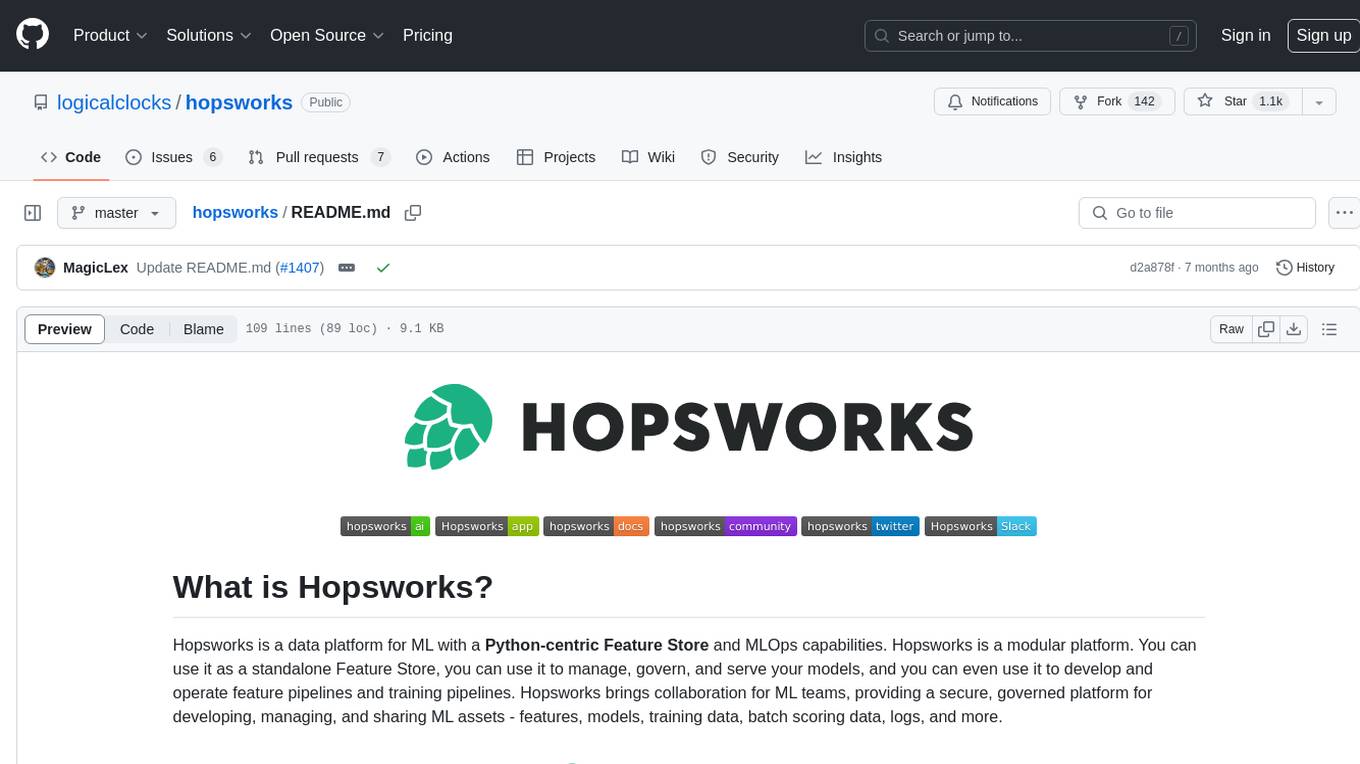
hopsworks
Hopsworks is a data platform for ML with a Python-centric Feature Store and MLOps capabilities. It provides collaboration for ML teams, offering a secure, governed platform for developing, managing, and sharing ML assets. Hopsworks supports project-based multi-tenancy, team collaboration, development tools for Data Science, and is available on any platform including managed cloud services and on-premise installations. The platform enables end-to-end responsibility from raw data to managed features and models, supports versioning, lineage, and provenance, and facilitates the complete MLOps life cycle.

nexent
Nexent is a powerful tool for analyzing and visualizing network traffic data. It provides comprehensive insights into network behavior, helping users to identify patterns, anomalies, and potential security threats. With its user-friendly interface and advanced features, Nexent is suitable for network administrators, cybersecurity professionals, and anyone looking to gain a deeper understanding of their network infrastructure.
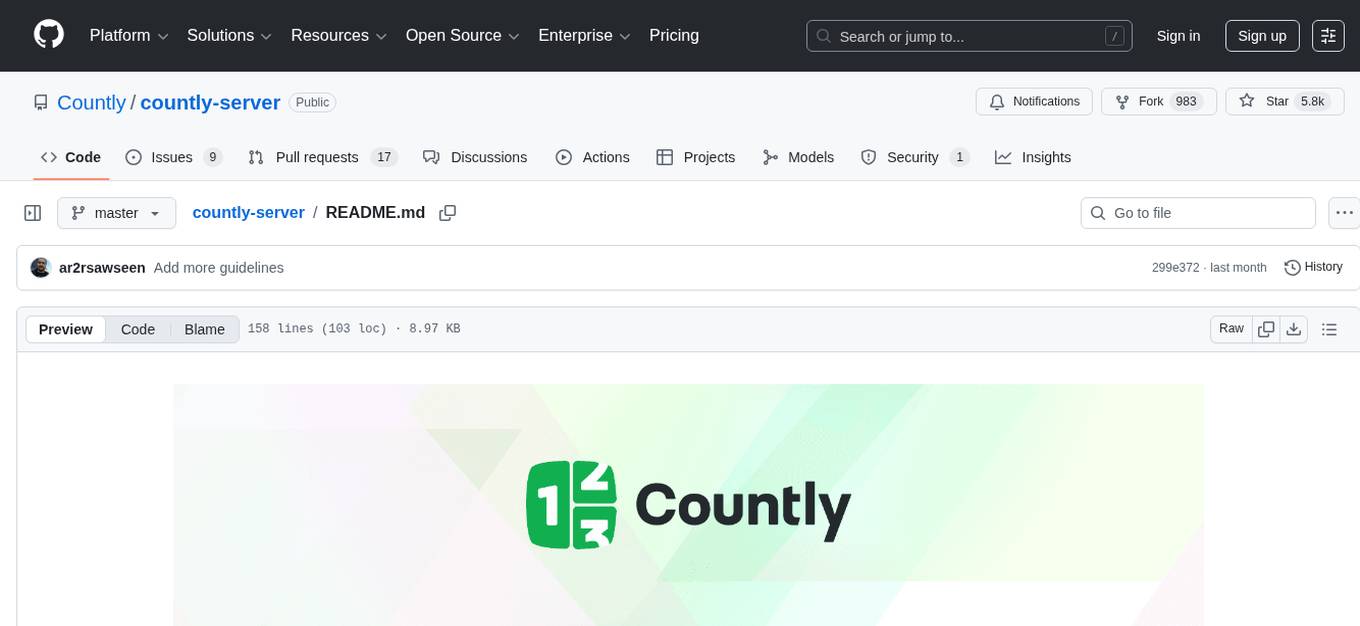
countly-server
Countly is a privacy-first, AI-ready analytics and customer engagement platform built for organizations that require full data ownership and deployment flexibility. It can be deployed on-premises or in a private cloud, giving complete control over data, infrastructure, compliance, and security. Teams use Countly to understand user behavior across mobile, web, desktop, and connected devices, optimize product and customer experiences in real time, and automate and personalize customer engagement across channels. With flexible data tracking, customizable dashboards, and a modular plugin-based architecture, Countly scales with the product while ensuring long-term autonomy and zero vendor lock-in. Built for privacy, designed for flexibility, and ready for AI-driven innovation.
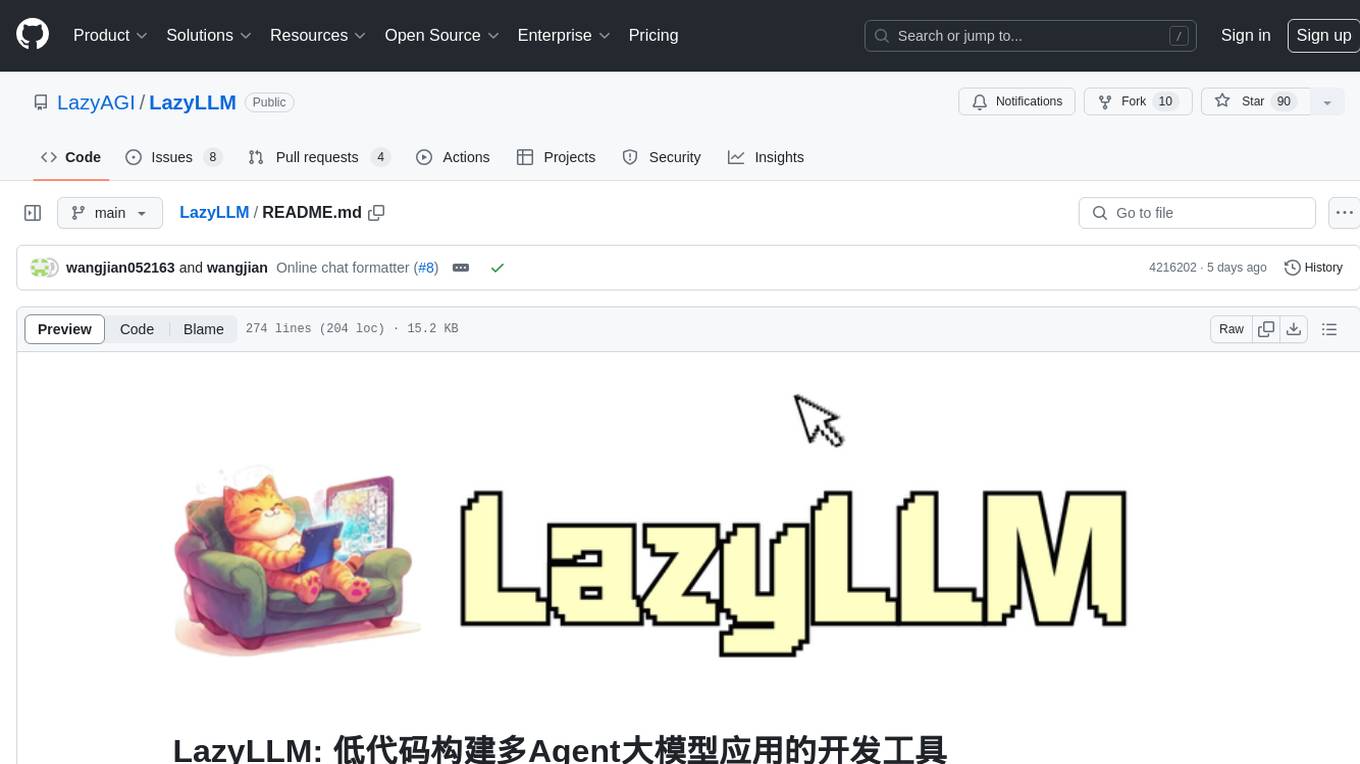
LazyLLM
LazyLLM is a low-code development tool for building complex AI applications with multiple agents. It assists developers in building AI applications at a low cost and continuously optimizing their performance. The tool provides a convenient workflow for application development and offers standard processes and tools for various stages of application development. Users can quickly prototype applications with LazyLLM, analyze bad cases with scenario task data, and iteratively optimize key components to enhance the overall application performance. LazyLLM aims to simplify the AI application development process and provide flexibility for both beginners and experts to create high-quality applications.
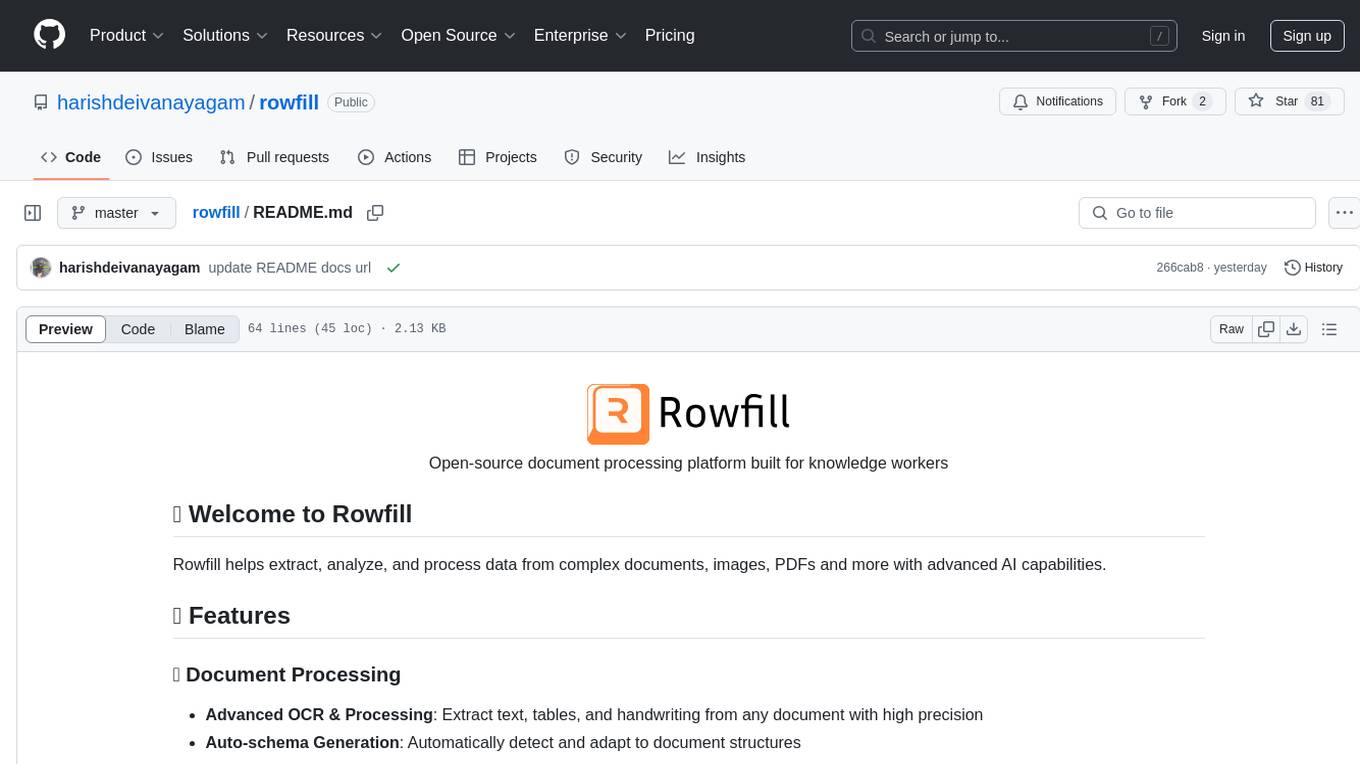
rowfill
Rowfill is an open-source document processing platform designed for knowledge workers. It offers advanced AI capabilities to extract, analyze, and process data from complex documents, images, and PDFs. The platform features advanced OCR and processing functionalities, auto-schema generation, and custom actions for creating tailored workflows. It prioritizes privacy and security by supporting Local LLMs like Llama and Mistral, syncing with company data while maintaining privacy, and being open source with AGPLv3 licensing. Rowfill is a versatile tool that aims to streamline document processing tasks for users in various industries.
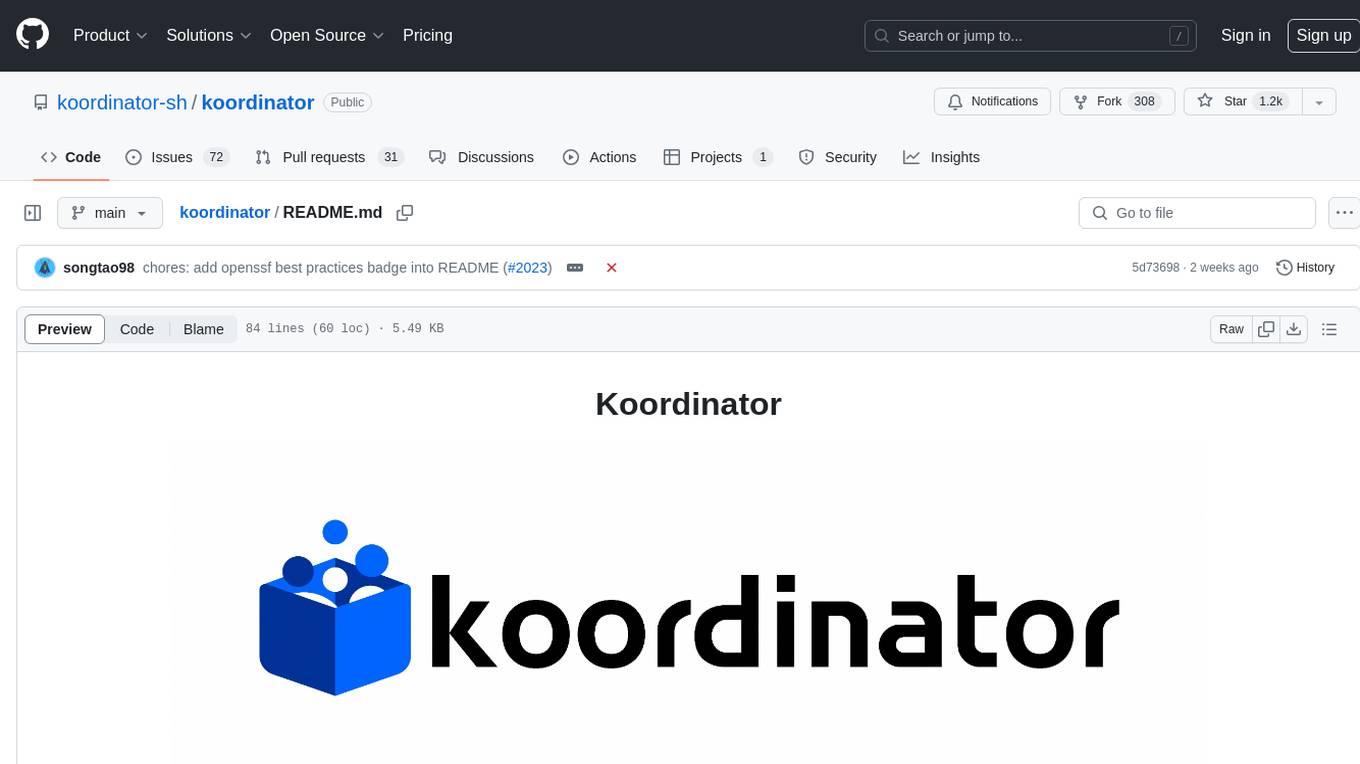
koordinator
Koordinator is a QoS based scheduling system for hybrid orchestration workloads on Kubernetes. It aims to improve runtime efficiency and reliability of latency sensitive workloads and batch jobs, simplify resource-related configuration tuning, and increase pod deployment density. It enhances Kubernetes user experience by optimizing resource utilization, improving performance, providing flexible scheduling policies, and easy integration into existing clusters.

openvino
OpenVINO™ is an open-source toolkit for optimizing and deploying AI inference. It provides a common API to deliver inference solutions on various platforms, including CPU, GPU, NPU, and heterogeneous devices. OpenVINO™ supports pre-trained models from Open Model Zoo and popular frameworks like TensorFlow, PyTorch, and ONNX. Key components of OpenVINO™ include the OpenVINO™ Runtime, plugins for different hardware devices, frontends for reading models from native framework formats, and the OpenVINO Model Converter (OVC) for adjusting models for optimal execution on target devices.
For similar tasks

Geoweaver
Geoweaver is an in-browser software that enables users to easily compose and execute full-stack data processing workflows using online spatial data facilities, high-performance computation platforms, and open-source deep learning libraries. It provides server management, code repository, workflow orchestration software, and history recording capabilities. Users can run it from both local and remote machines. Geoweaver aims to make data processing workflows manageable for non-coder scientists and preserve model run history. It offers features like progress storage, organization, SSH connection to external servers, and a web UI with Python support.
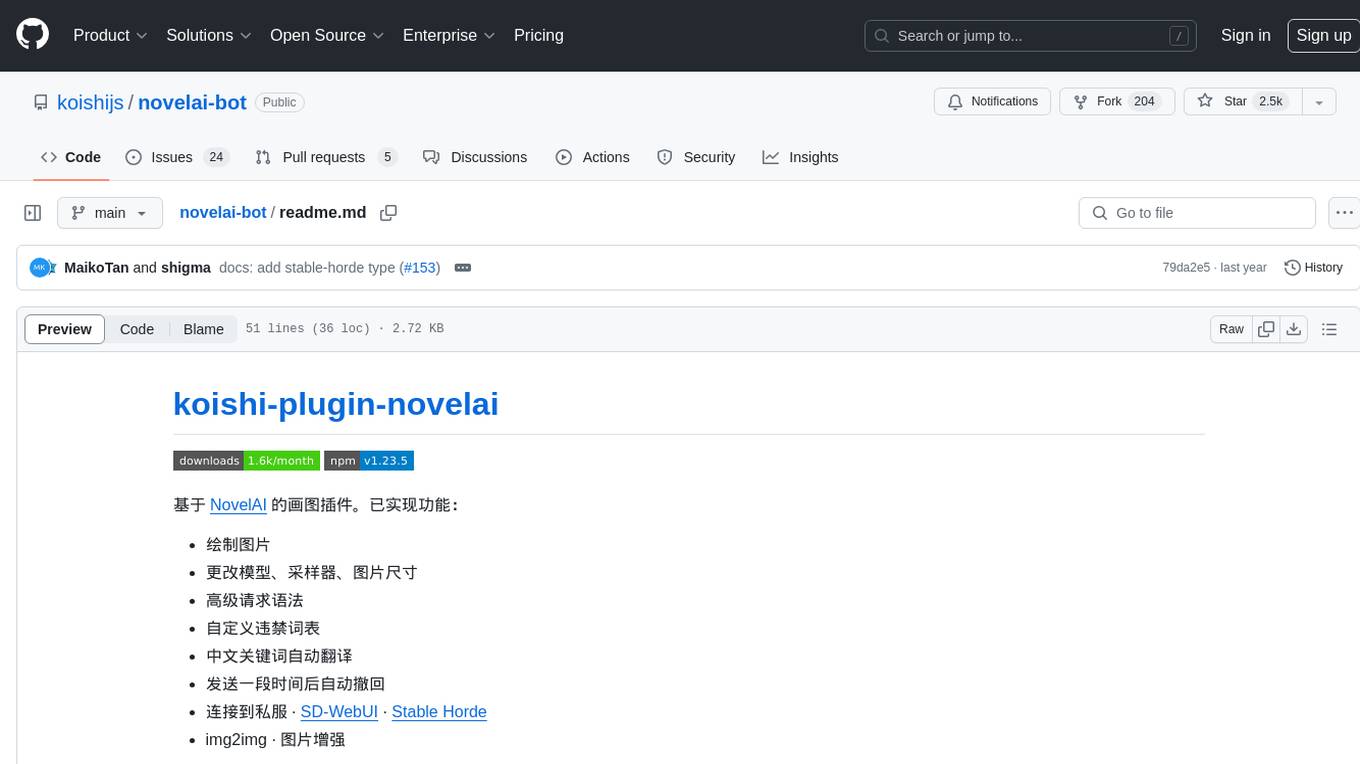
novelai-bot
This repository contains a drawing plugin based on NovelAI. It allows users to draw images, change models, samplers, and image sizes, use advanced request syntax, customize prohibited word lists, automatically translate Chinese keywords, automatically retract messages after a certain time, and connect to private servers. Thanks to Koishi's plugin mechanism, users can achieve more functionalities by combining it with other plugins, such as multi-platform support, rate limiting, context management, and multi-language support.
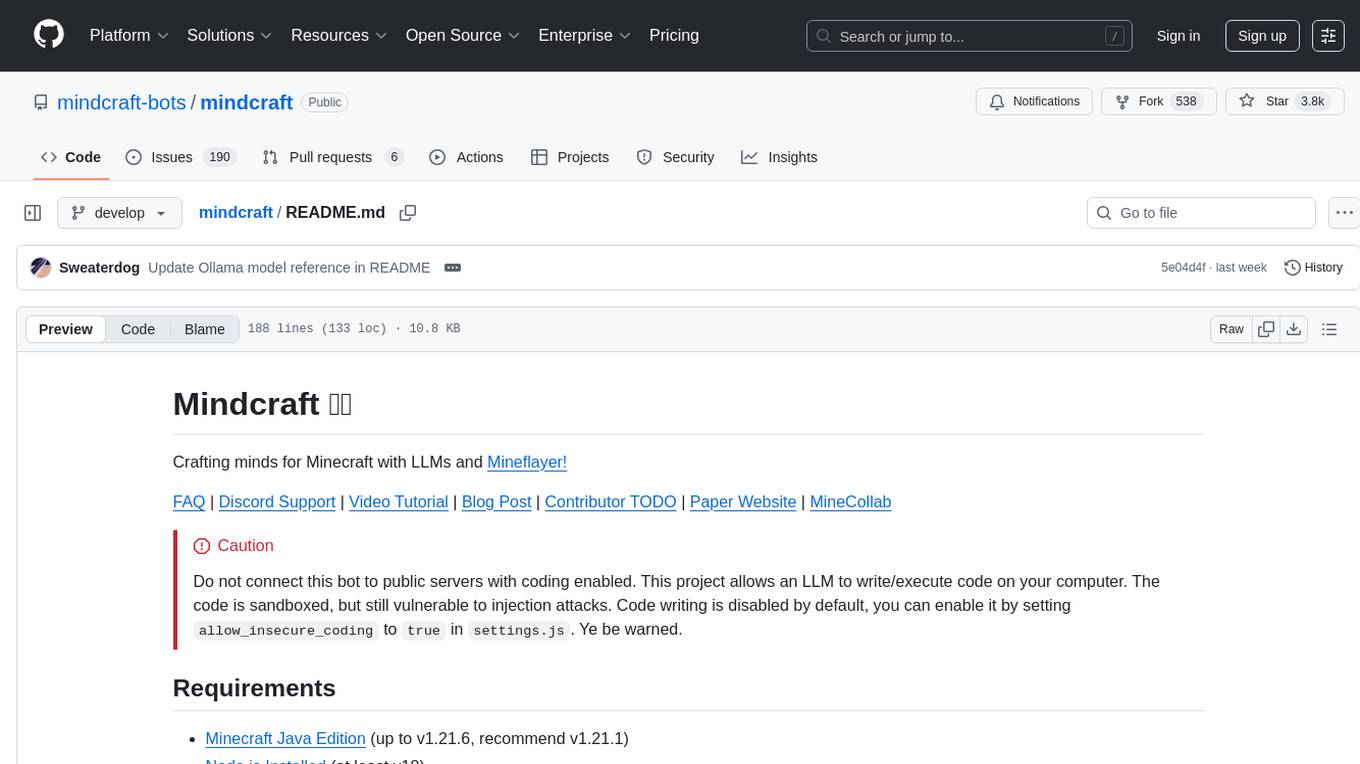
mindcraft
Mindcraft is a project that crafts minds for Minecraft using Large Language Models (LLMs) and Mineflayer. It allows an LLM to write and execute code on your computer, with code sandboxed but still vulnerable to injection attacks. The project requires Minecraft Java Edition, Node.js, and one of several API keys. Users can run tasks to acquire specific items or construct buildings, customize project details in settings.js, and connect to online servers with a Microsoft/Minecraft account. The project also supports Docker container deployment for running in a secure environment.
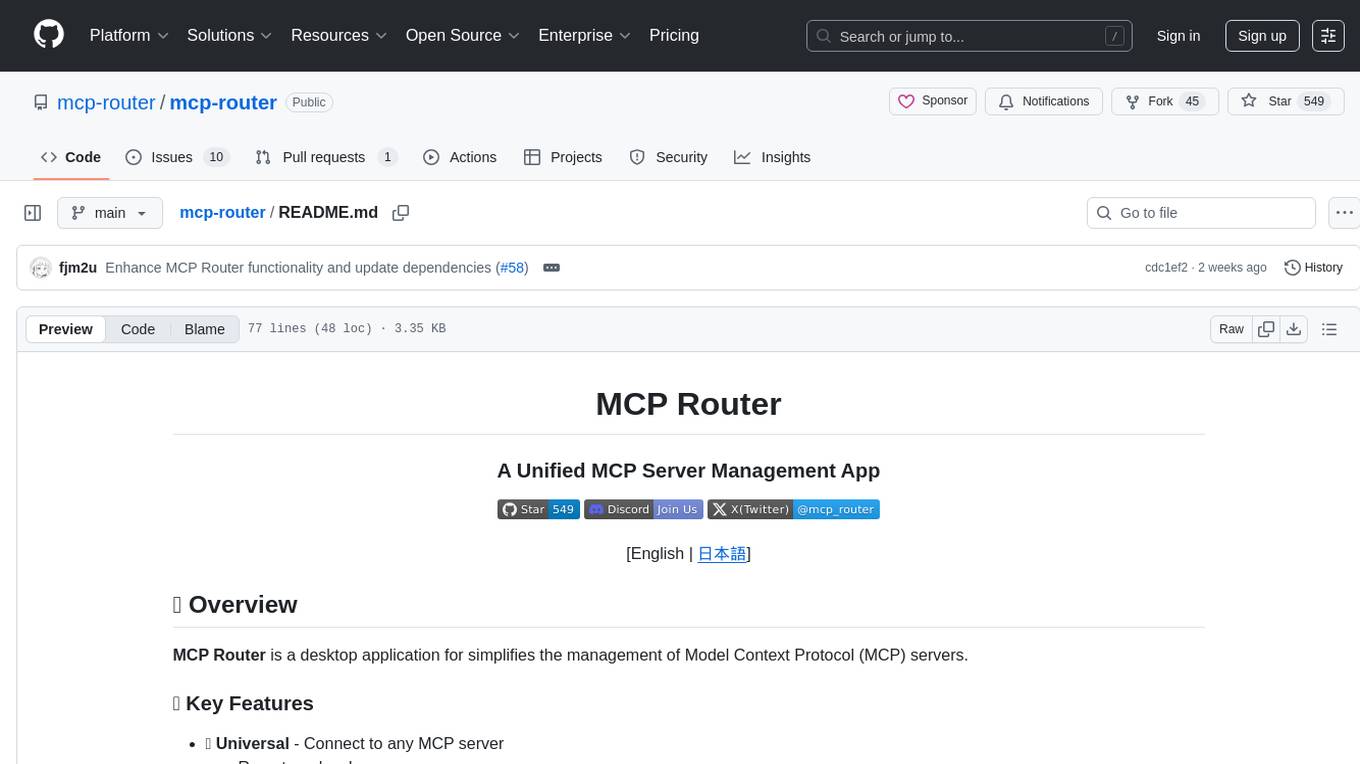
mcp-router
MCP Router is a desktop application that simplifies the management of Model Context Protocol (MCP) servers. It is a universal tool that allows users to connect to any MCP server, supports remote or local servers, and provides data portability by enabling easy export and import of MCP configurations. The application prioritizes privacy and security by storing all data locally, ensuring secure credentials, and offering complete control over server connections and data. Transparency is maintained through auditable source code, verifiable privacy practices, and community-driven security improvements and audits.
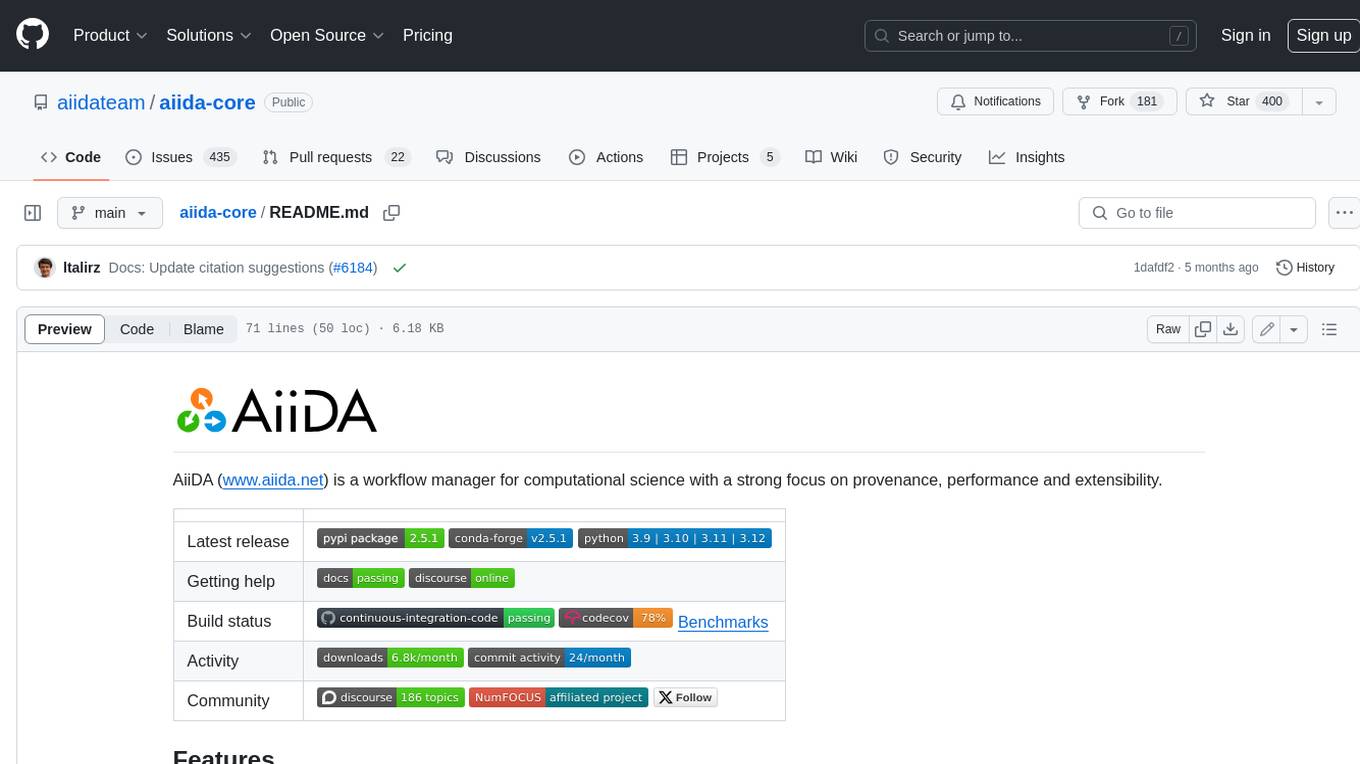
aiida-core
AiiDA (www.aiida.net) is a workflow manager for computational science with a strong focus on provenance, performance and extensibility. **Features** * **Workflows:** Write complex, auto-documenting workflows in python, linked to arbitrary executables on local and remote computers. The event-based workflow engine supports tens of thousands of processes per hour with full checkpointing. * **Data provenance:** Automatically track inputs, outputs & metadata of all calculations in a provenance graph for full reproducibility. Perform fast queries on graphs containing millions of nodes. * **HPC interface:** Move your calculations to a different computer by changing one line of code. AiiDA is compatible with schedulers like SLURM, PBS Pro, torque, SGE or LSF out of the box. * **Plugin interface:** Extend AiiDA with plugins for new simulation codes (input generation & parsing), data types, schedulers, transport modes and more. * **Open Science:** Export subsets of your provenance graph and share them with peers or make them available online for everyone on the Materials Cloud. * **Open source:** AiiDA is released under the MIT open source license
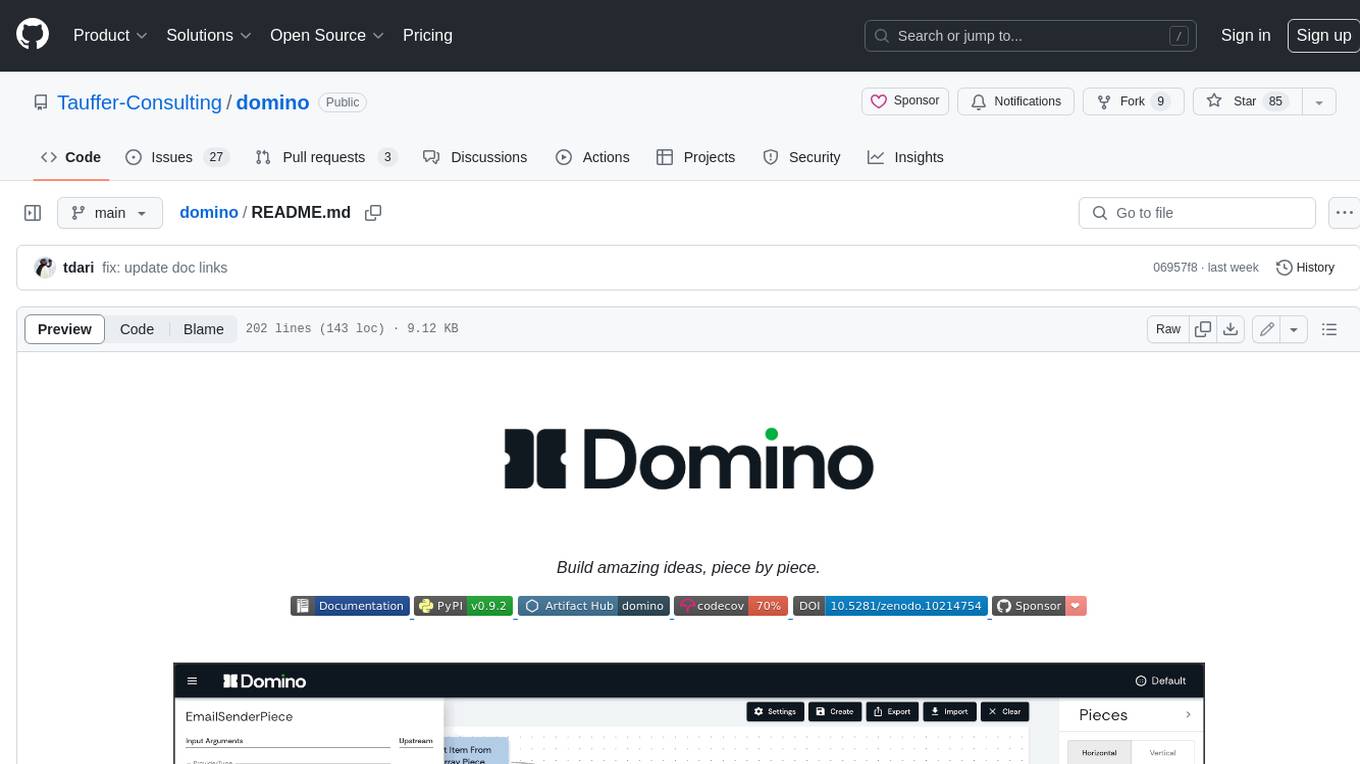
domino
Domino is an open source workflow management platform that provides an intuitive GUI for creating, editing, and monitoring workflows. It also offers a standard way of writing and publishing functional pieces that can be reused in multiple workflows. Domino is powered by Apache Airflow for top-tier workflows scheduling and monitoring.
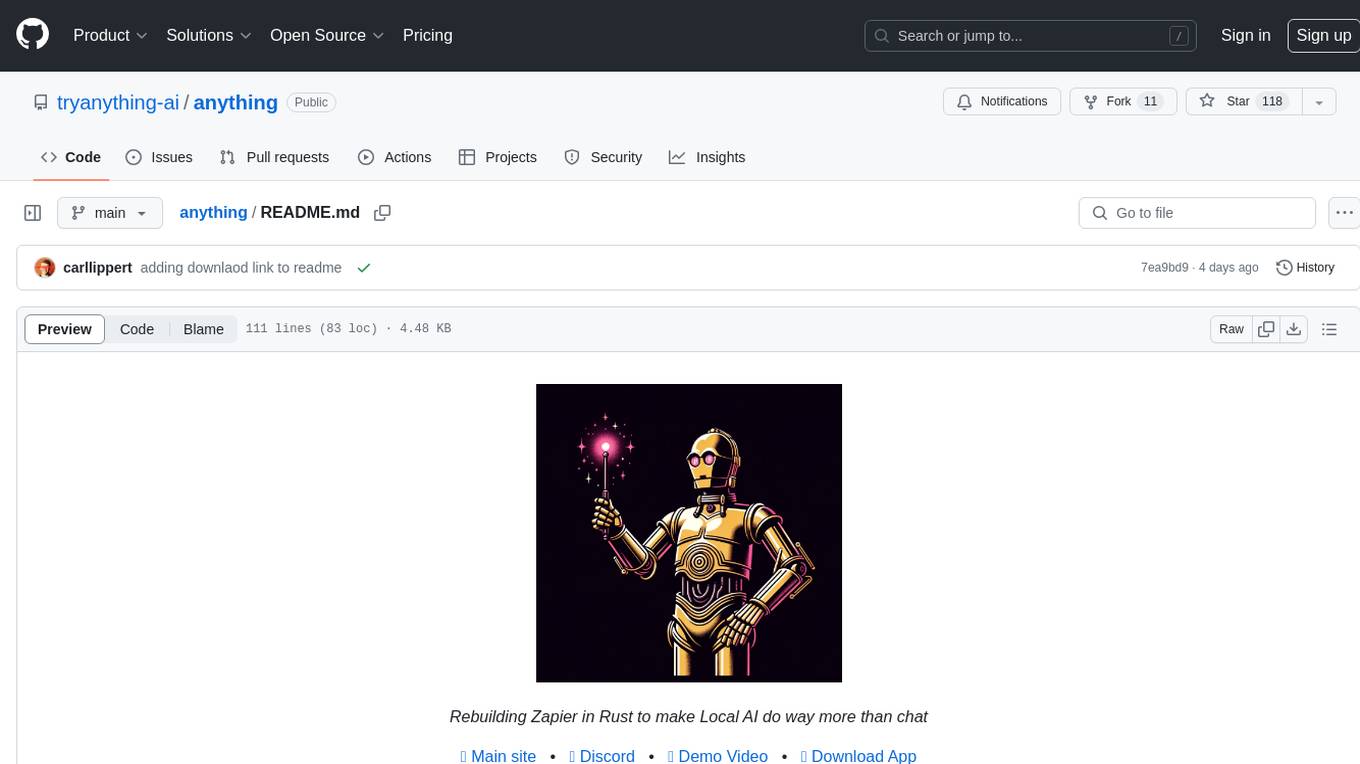
anything
Anything is an open automation tool built in Rust that aims to rebuild Zapier, enabling local AI to perform a wide range of tasks beyond chat functionalities. The tool focuses on extensibility without sacrificing understandability, allowing users to create custom extensions in Rust or other interpreted languages like Python or Typescript. It features an embedded SQLite DB, a WYSIWYG editor, event system, cron trigger, HTTP and CLI extensions, with plans for additional extensions like Deno, Python, and Local AI. The tool is designed to be user-friendly, with a file-first state approach, portable triggers, actions, and flows, and a human-centric file and folder naming convention. It does not require Docker, making it easy to run on low-powered devices for 24/7 self-hosting. The event processing is focused on simplicity and visibility, with extensibility through custom extensions and a marketplace for templates, actions, and triggers.
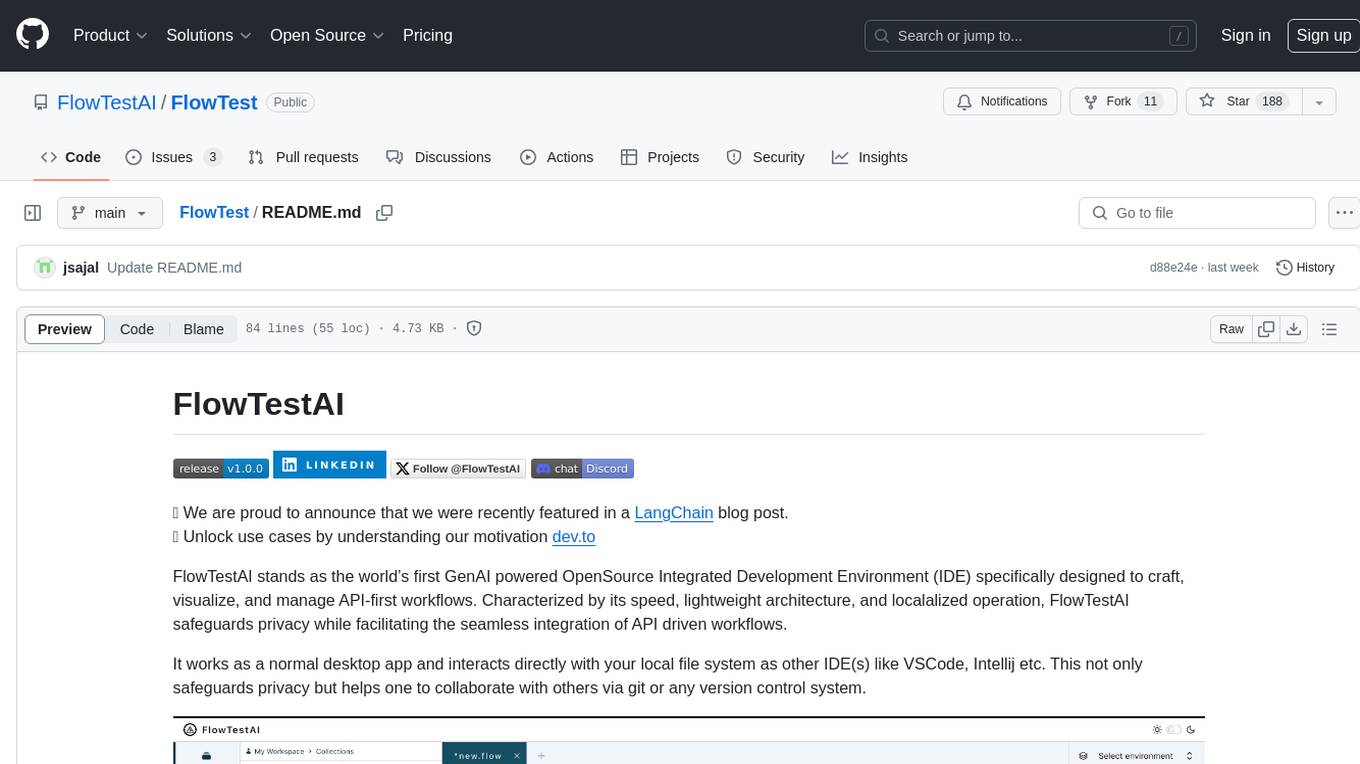
FlowTest
FlowTestAI is the world’s first GenAI powered OpenSource Integrated Development Environment (IDE) designed for crafting, visualizing, and managing API-first workflows. It operates as a desktop app, interacting with the local file system, ensuring privacy and enabling collaboration via version control systems. The platform offers platform-specific binaries for macOS, with versions for Windows and Linux in development. It also features a CLI for running API workflows from the command line interface, facilitating automation and CI/CD processes.
For similar jobs

sweep
Sweep is an AI junior developer that turns bugs and feature requests into code changes. It automatically handles developer experience improvements like adding type hints and improving test coverage.

teams-ai
The Teams AI Library is a software development kit (SDK) that helps developers create bots that can interact with Teams and Microsoft 365 applications. It is built on top of the Bot Framework SDK and simplifies the process of developing bots that interact with Teams' artificial intelligence capabilities. The SDK is available for JavaScript/TypeScript, .NET, and Python.

ai-guide
This guide is dedicated to Large Language Models (LLMs) that you can run on your home computer. It assumes your PC is a lower-end, non-gaming setup.

classifai
Supercharge WordPress Content Workflows and Engagement with Artificial Intelligence. Tap into leading cloud-based services like OpenAI, Microsoft Azure AI, Google Gemini and IBM Watson to augment your WordPress-powered websites. Publish content faster while improving SEO performance and increasing audience engagement. ClassifAI integrates Artificial Intelligence and Machine Learning technologies to lighten your workload and eliminate tedious tasks, giving you more time to create original content that matters.

chatbot-ui
Chatbot UI is an open-source AI chat app that allows users to create and deploy their own AI chatbots. It is easy to use and can be customized to fit any need. Chatbot UI is perfect for businesses, developers, and anyone who wants to create a chatbot.

BricksLLM
BricksLLM is a cloud native AI gateway written in Go. Currently, it provides native support for OpenAI, Anthropic, Azure OpenAI and vLLM. BricksLLM aims to provide enterprise level infrastructure that can power any LLM production use cases. Here are some use cases for BricksLLM: * Set LLM usage limits for users on different pricing tiers * Track LLM usage on a per user and per organization basis * Block or redact requests containing PIIs * Improve LLM reliability with failovers, retries and caching * Distribute API keys with rate limits and cost limits for internal development/production use cases * Distribute API keys with rate limits and cost limits for students

uAgents
uAgents is a Python library developed by Fetch.ai that allows for the creation of autonomous AI agents. These agents can perform various tasks on a schedule or take action on various events. uAgents are easy to create and manage, and they are connected to a fast-growing network of other uAgents. They are also secure, with cryptographically secured messages and wallets.

griptape
Griptape is a modular Python framework for building AI-powered applications that securely connect to your enterprise data and APIs. It offers developers the ability to maintain control and flexibility at every step. Griptape's core components include Structures (Agents, Pipelines, and Workflows), Tasks, Tools, Memory (Conversation Memory, Task Memory, and Meta Memory), Drivers (Prompt and Embedding Drivers, Vector Store Drivers, Image Generation Drivers, Image Query Drivers, SQL Drivers, Web Scraper Drivers, and Conversation Memory Drivers), Engines (Query Engines, Extraction Engines, Summary Engines, Image Generation Engines, and Image Query Engines), and additional components (Rulesets, Loaders, Artifacts, Chunkers, and Tokenizers). Griptape enables developers to create AI-powered applications with ease and efficiency.









